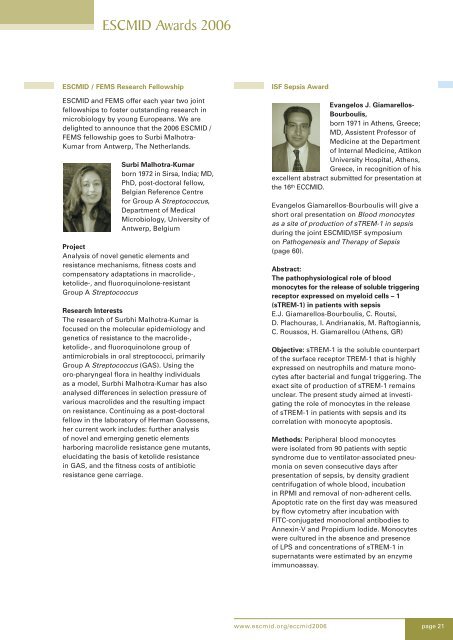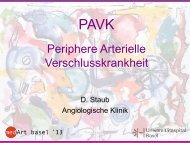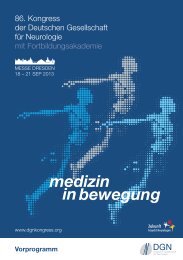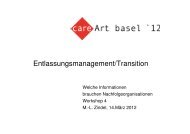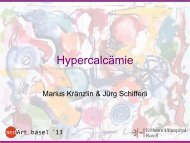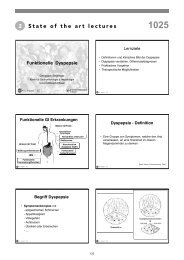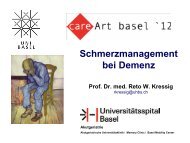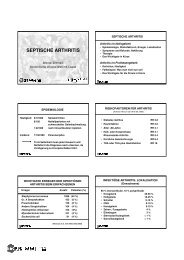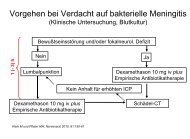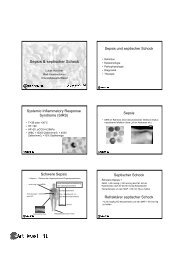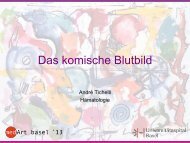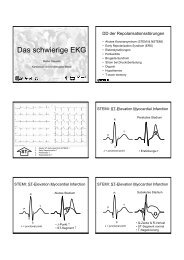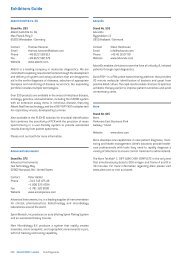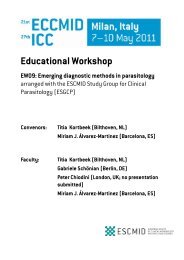Final Programme
Final Programme
Final Programme
Create successful ePaper yourself
Turn your PDF publications into a flip-book with our unique Google optimized e-Paper software.
ESCMID Awards 2006<br />
ESCMID / FEMS Research Fellowship<br />
ESCMID and FEMS offer each year two joint<br />
fellowships to foster outstanding research in<br />
microbiology by young Europeans. We are<br />
delighted to announce that the 2006 ESCMID /<br />
FEMS fellowship goes to Surbi Malhotra-<br />
Kumar from Antwerp, The Netherlands.<br />
Surbi Malhotra-Kumar<br />
born 1972 in Sirsa, India; MD,<br />
PhD, post-doctoral fellow,<br />
Belgian Reference Centre<br />
for Group A Streptococcus,<br />
Department of Medical<br />
Microbiology, University of<br />
Antwerp, Belgium<br />
Project<br />
Analysis of novel genetic elements and<br />
resistance mechanisms, fitness costs and<br />
compensatory adaptations in macrolide-,<br />
ketolide-, and fluoroquinolone-resistant<br />
Group A Streptococcus<br />
Research Interests<br />
The research of Surbhi Malhotra-Kumar is<br />
focused on the molecular epidemiology and<br />
genetics of resistance to the macrolide-,<br />
ketolide-, and fluoroquinolone group of<br />
antimicrobials in oral streptococci, primarily<br />
Group A Streptococcus (GAS). Using the<br />
oro-pharyngeal flora in healthy individuals<br />
as a model, Surbhi Malhotra-Kumar has also<br />
analysed differences in selection pressure of<br />
various macrolides and the resulting impact<br />
on resistance. Continuing as a post-doctoral<br />
fellow in the laboratory of Herman Goossens,<br />
her current work includes: further analysis<br />
of novel and emerging genetic elements<br />
harboring macrolide resistance gene mutants,<br />
elucidating the basis of ketolide resistance<br />
in GAS, and the fitness costs of antibiotic<br />
resistance gene carriage.<br />
ISF Sepsis Award<br />
Evangelos J. Giamarellos-<br />
Bourboulis,<br />
born 1971 in Athens, Greece;<br />
MD, Assistent Professor of<br />
Medicine at the Department<br />
of Internal Medicine, Attikon<br />
University Hospital, Athens,<br />
Greece, in recognition of his<br />
excellent abstract submitted for presentation at<br />
the 16 th ECCMID.<br />
Evangelos Giamarellos-Bourboulis will give a<br />
short oral presentation on Blood monocytes<br />
as a site of production of sTREM-1 in sepsis<br />
during the joint ESCMID/ISF symposium<br />
on Pathogenesis and Therapy of Sepsis<br />
(page 60).<br />
Abstract:<br />
The pathophysiological role of blood<br />
monocytes for the release of soluble triggering<br />
receptor expressed on myeloid cells – 1<br />
(sTREM-1) in patients with sepsis<br />
E.J. Giamarellos-Bourboulis, C. Routsi,<br />
D. Plachouras, I. Andrianakis, M. Raftogiannis,<br />
C. Roussos, H. Giamarellou (Athens, GR)<br />
Objective: sTREM-1 is the soluble counterpart<br />
of the surface receptor TREM-1 that is highly<br />
expressed on neutrophils and mature monocytes<br />
after bacterial and fungal triggering. The<br />
exact site of production of sTREM-1 remains<br />
unclear. The present study aimed at investigating<br />
the role of monocytes in the release<br />
of sTREM-1 in patients with sepsis and its<br />
correlation with monocyte apoptosis.<br />
Methods: Peripheral blood monocytes<br />
were isolated from 90 patients with septic<br />
syndrome due to ventilator-associated pneumonia<br />
on seven consecutive days after<br />
presentation of sepsis, by density gradient<br />
centrifugation of whole blood, incubation<br />
in RPMI and removal of non-adherent cells.<br />
Apoptotic rate on the first day was measured<br />
by flow cytometry after incubation with<br />
FITC-conjugated monoclonal antibodies to<br />
Annexin-V and Propidium Iodide. Monocytes<br />
were cultured in the absence and presence<br />
of LPS and concentrations of sTREM-1 in<br />
supernatants were estimated by an enzyme<br />
immunoassay.<br />
www.escmid.org/eccmid2006<br />
page 21


